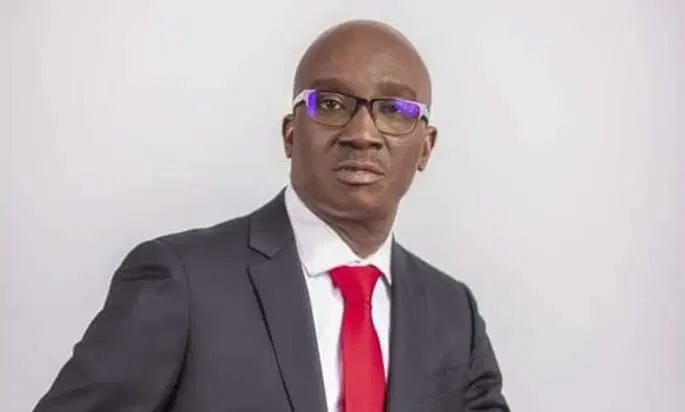
By Momodu Adams
Edo Leaders of Thought, a renowned civil society organisation, has noted with concern the circulation of a faceless, unsigned, and poorly conceived document purportedly from Ossiomo Power Company. No credible organisation issues unsigned press releases.
Following this development, and in the spirit of transparency, our organisation undertook a private, independent investigation into the imbroglio between Ossiomo Power Plant and the Edo State Government. Our findings reveal troubling patterns of opacity, inflated costs, and questionable practices that demand answers.
From our investigations, it is clear that the Edo State Government has zero stakes in Ossiomo Power Company Limited. The company is 100% privately owned. The challenges facing Ossiomo are purely internal and have also affected government and private subscribers alike, with the Edo State Government itself often being a victim of these disruptions.
The arrangement between the State and Ossiomo was inherited by the present administration of Governor Monday Okpebholo. Though hailed by the immediate past government of Mr. Godwin Obaseki as an innovation, in reality, it was riddled with inflated bills, fluctuating tariffs, and deliberate opacity.
For the entirety of Mr. Obaseki’s tenure, Edo State Government facilities were never metered. Instead, they operated on post-paid estimated billing, under which millions of naira were paid monthly without verifiable evidence of actual consumption. Meters were only hurriedly installed in September 2024, immediately after the electoral defeat of his party and barely two months before he left office.
Between January and November 2024 alone, over ₦5 billion was paid to Ossiomo by the Obaseki administration for government establishments. Monthly charges ranged from ₦308 million to as high as ₦718 million. The highest bills, ₦673 million in September, ₦718 million in October, and ₦474 million in November, were incurred immediately after Obaseki’s party electoral defeat and just before his exit.
The tariffs were not only exorbitant but unstable. Records show that Ossiomo charged wildly fluctuating rates between ₦99.97/kWh and ₦236.78/kWh, with no consistency from month to month. By contrast, BEDC, a regulated distribution company, maintained predictable tariffs: ₦68/kWh until April 2024, later adjusted to ₦225/kWh.
In contrast, Governor Okpebholo introduced reforms that changed the narrative. He ordered the installation of prepaid meters across government establishments, ending the opaque billing system. Today, government facilities pay Ossiomo an average of ₦199 million for every 45-day cycle, a drastic reduction from as high as ₦700 million monthly outflows under Obaseki. With prepaid metering now in place, consumption is verifiable, billing is transparent, and payments are reduced by over 75 percent.
Between January and November 2024 alone, the Obaseki administration paid Ossiomo over ₦5 billion. In contrast, within the first nine months of Governor Okpebholo’s tenure (December 2024 to August 2025), the State has spent only ₦1.55 billion on electricity providers; ₦1.2 billion to Ossiomo and ₦345 million to BEDC.
This disparity raises troubling questions. Why did the Obaseki administration deliberately refuse to meter government establishments for years? Why was Edo State locked into a billing regime where billions were paid without accountability? What was Obaseki’s true interest in Ossiomo, a private company, that justified such extraordinary state patronage? And why was the entire electricity supply of the State surrendered to one company in a manner that suppressed competition and transparency?
Our independent investigation has also brought to light another poser: if, as Mr. Obaseki consistently claimed, his administration invested heavily in Ossiomo and offered the company an open hand of fellowship, why then were his government’s electricity bills 75% higher than what Governor Okpebholo now pays to the same company for the same service? This inconsistency suggests the existence of shadowy deals that the public is yet to be told.
As a civic organisation committed to accountability, we are compelled to insist that these issues be brought to light. Edo people deserve full disclosure. Transparency is not optional. It is the cornerstone of democracy and good governance.
The unsigned release currently in circulation only reflects the evasiveness that characterised Ossiomo’s dealings under the previous administration. Civil society and Edo citizens will not be distracted by such antics. What Edo needs, and what we must continue to demand is full transparency, prudent resource management, and the protection of public interest above private profiteering.

Join the Conversation